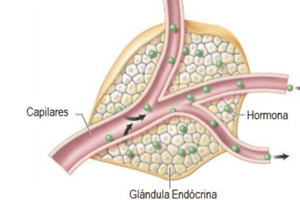Podcast
Questions and Answers
What is emotional avoidance behaviour?
What is emotional avoidance behaviour?
- A behaviour used to avoid intolerable emotions. (correct)
- A behaviour used to control environments and people.
- A behaviour used to seek pleasure and thrill.
- A behaviour used to please others.
What are some common emotional avoidance behaviours in individuals with BPD?
What are some common emotional avoidance behaviours in individuals with BPD?
- Desiring unrealistic control and pleasure-seeking activities/products. (correct)
- Multitasking and pleasure-seeking activities/products.
- Scattered/racing thoughts and desiring unrealistic control.
- Scattered/racing thoughts and people-pleasing.
What effect can the constant promotion of pleasure-seeking and avoidance behaviours have on emotional mastery?
What effect can the constant promotion of pleasure-seeking and avoidance behaviours have on emotional mastery?
- It can improve emotional mastery.
- It can undermine emotional mastery. (correct)
- It can have no effect on emotional mastery.
- It can lead to emotional numbness.
What is the consequence of using emotional avoidance behaviours regardless of the consequences they might produce?
What is the consequence of using emotional avoidance behaviours regardless of the consequences they might produce?
What is one emotional avoidance behaviour used by individuals with BPD who fear abandonment and are sensitive to guilt and shame?
What is one emotional avoidance behaviour used by individuals with BPD who fear abandonment and are sensitive to guilt and shame?
What is the benefit of emotional responsibility and self-awareness for individuals with BPD?
What is the benefit of emotional responsibility and self-awareness for individuals with BPD?
What is the consequence of using pleasure-seeking and thrill-seeking activities/products as emotional avoidance behaviours in the long-term?
What is the consequence of using pleasure-seeking and thrill-seeking activities/products as emotional avoidance behaviours in the long-term?
What is the purpose of emotional avoidance behaviour?
What is the purpose of emotional avoidance behaviour?
What is the consequence of using people-pleasing as an emotional avoidance behaviour?
What is the consequence of using people-pleasing as an emotional avoidance behaviour?
What is the effect of companies worldwide promoting consumption of their products to avoid emotional responsibility?
What is the effect of companies worldwide promoting consumption of their products to avoid emotional responsibility?
What is the consequence of using an unrealistic amount of control over environments and people as an emotional avoidance behaviour?
What is the consequence of using an unrealistic amount of control over environments and people as an emotional avoidance behaviour?
What is one emotional avoidance behaviour used to avoid frustrated/irritated responses and the fear of abandonment?
What is one emotional avoidance behaviour used to avoid frustrated/irritated responses and the fear of abandonment?
What is emotional avoidance behaviour?
What is emotional avoidance behaviour?
What are some common emotional avoidance behaviours in individuals with BPD?
What are some common emotional avoidance behaviours in individuals with BPD?
What are the consequences of pleasure-seeking and thrill-seeking emotional avoidance behaviours?
What are the consequences of pleasure-seeking and thrill-seeking emotional avoidance behaviours?
What makes it challenging for individuals with BPD to face difficult emotions honestly?
What makes it challenging for individuals with BPD to face difficult emotions honestly?
What emotional avoidance behaviour is often seen in individuals with BPD who fear abandonment and are sensitive to guilt and shame?
What emotional avoidance behaviour is often seen in individuals with BPD who fear abandonment and are sensitive to guilt and shame?
What is the consequence of using emotional avoidance behaviours?
What is the consequence of using emotional avoidance behaviours?
What is the purpose of people-pleasing as an emotional avoidance behaviour?
What is the purpose of people-pleasing as an emotional avoidance behaviour?
What is emotional mastery?
What is emotional mastery?
What is an unrealistic expectation that can be an emotional avoidance behaviour?
What is an unrealistic expectation that can be an emotional avoidance behaviour?
What is the key to overcoming emotional avoidance behaviours for individuals with BPD?
What is the key to overcoming emotional avoidance behaviours for individuals with BPD?
What emotional avoidance behaviour is used to feel internally secure?
What emotional avoidance behaviour is used to feel internally secure?
What can emotional avoidance behaviours lead to?
What can emotional avoidance behaviours lead to?
Flashcards are hidden until you start studying
Study Notes
Emotional Avoidance Behaviours in Borderline Personality Disorder
- Emotional avoidance behaviour is used to avoid intolerable emotions, but there are always consequences.
- Pleasure-seeking and thrill-seeking activities/products are common emotional avoidance behaviours, but they have harsh long-term consequences.
- Companies worldwide promote consumption of their products to avoid emotional responsibility, making it challenging to face difficult emotions honestly.
- Scattered/racing thoughts are another emotional avoidance behaviour, often seen in individuals with BPD who fear abandonment and are sensitive to guilt and shame.
- Multitasking is an unrealistic expectation that can be an emotional avoidance behaviour to avoid frustrated/irritated responses and the fear of abandonment.
- People-pleasing is another emotional avoidance behaviour to avoid rejection or abandonment, but it can be tiring and produce resentment.
- The difficulty of emotions dictates which emotional avoidance behaviours are chosen in BPD.
- Desiring an unrealistic amount of control over environments and people is another emotional avoidance behaviour used to feel internally secure.
- Emotional avoidance behaviours are used regardless of the consequences they might produce, including losing significant relationships and being unable to function in life situations.
- Emotional avoidance behaviours can lead to desperation and an urge to give up on life.
- Emotional mastery can be undermined by the constant promotion of pleasure-seeking and avoidance behaviours in society.
- Emotional responsibility and self-awareness are essential for individuals with BPD to overcome emotional avoidance behaviours and improve their quality of life.
Studying That Suits You
Use AI to generate personalized quizzes and flashcards to suit your learning preferences.




